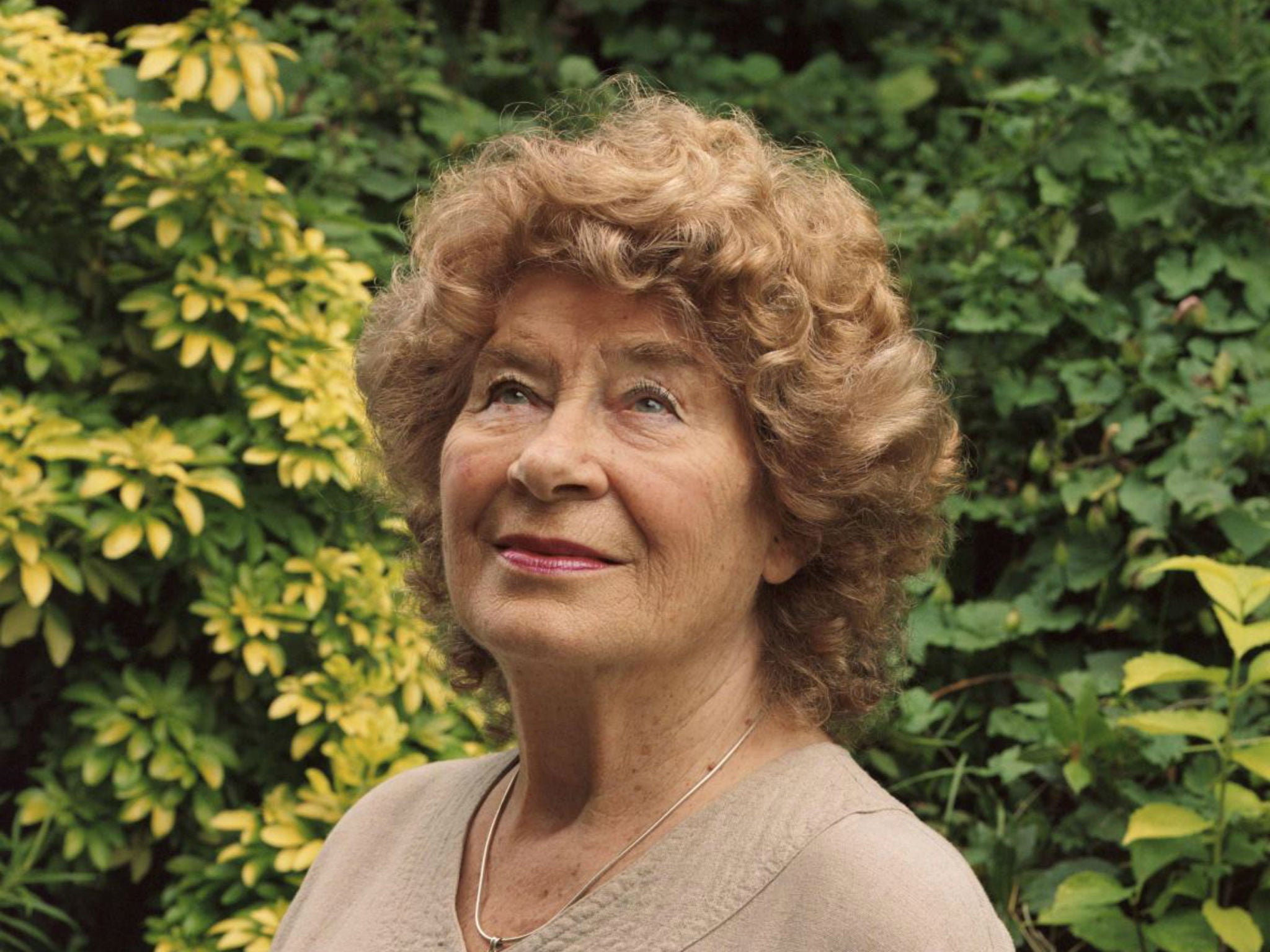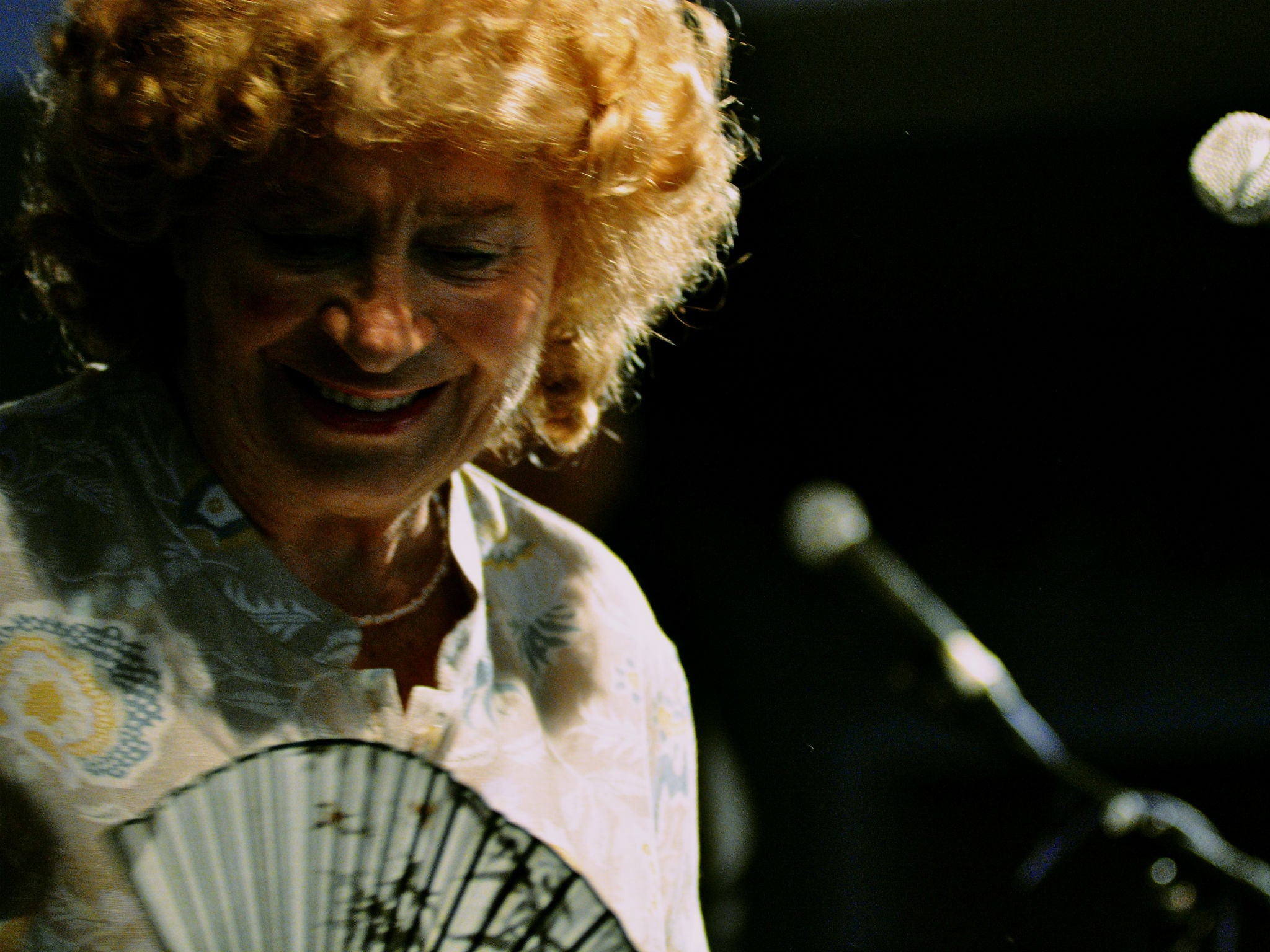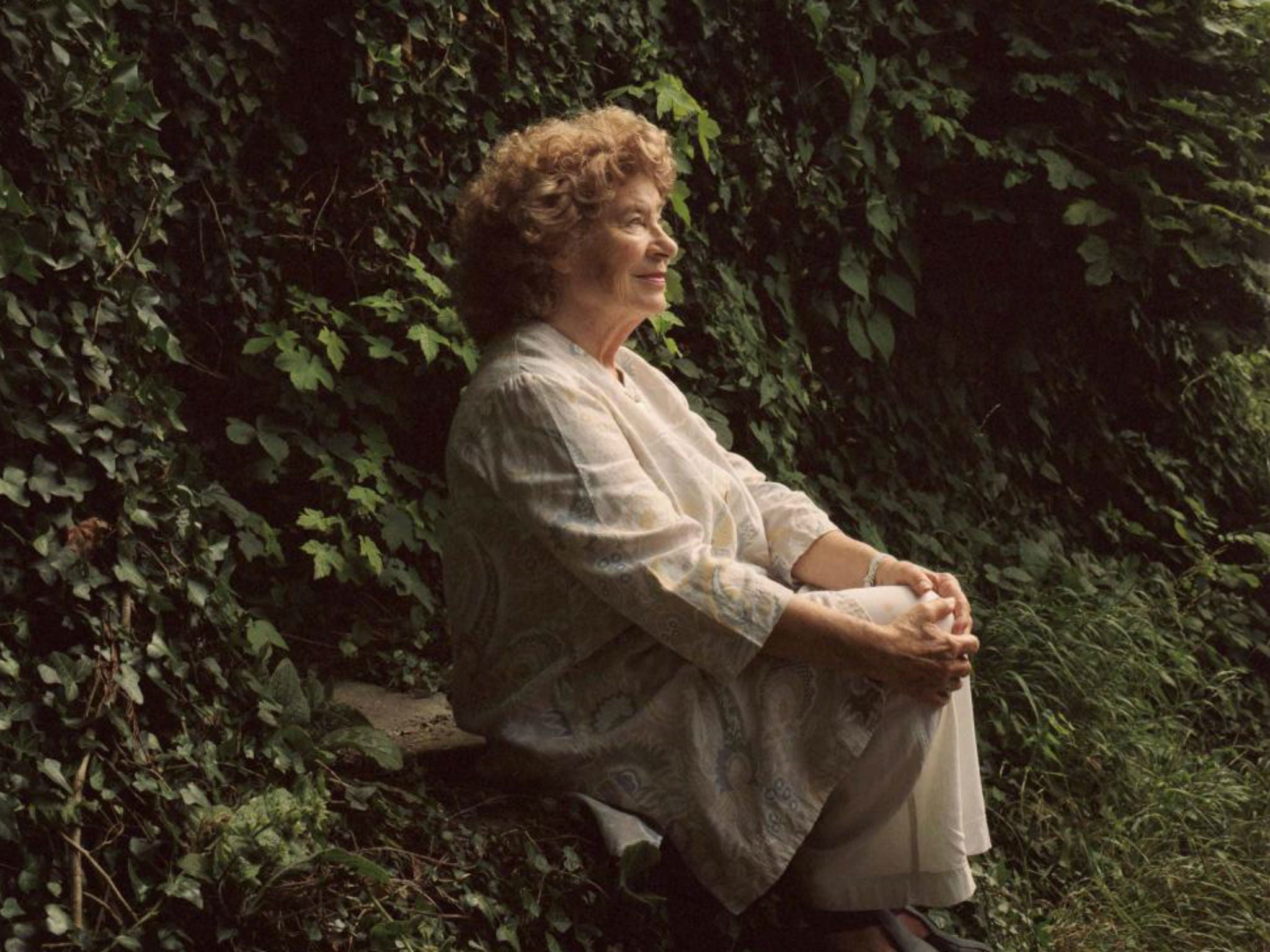'I want to challenge the toxic side of Englishness': Folk legend Shirley Collins on making a comeback at the age of 82
Almost four decades after she lost her voice, the singer is enjoying an improbable Indian summer. Now, a new documentary – ‘The Ballad of Shirley Collins’ – tells the story of her extraordinary life

Your support helps us to tell the story
From reproductive rights to climate change to Big Tech, The Independent is on the ground when the story is developing. Whether it's investigating the financials of Elon Musk's pro-Trump PAC or producing our latest documentary, 'The A Word', which shines a light on the American women fighting for reproductive rights, we know how important it is to parse out the facts from the messaging.
At such a critical moment in US history, we need reporters on the ground. Your donation allows us to keep sending journalists to speak to both sides of the story.
The Independent is trusted by Americans across the entire political spectrum. And unlike many other quality news outlets, we choose not to lock Americans out of our reporting and analysis with paywalls. We believe quality journalism should be available to everyone, paid for by those who can afford it.
Your support makes all the difference.In the homely living room of a small terraced house hidden away by Lewes Castle in East Sussex, folk legend Shirley Collins is sipping tea wearing a baffled smile. A new film about her extraordinary life, The Ballad of Shirley Collins, was released in October. The 82-year-old can’t quite believe she could be the focus of such attention. “When they first asked me I was nonplussed” she says, surprise still in her voice. “I thought, ‘is this a wind-up?’”
Tragedy, betrayal, voyage, redemption: Collins’ story could have been lifted from one of the age-old folk standards she became obsessed with growing up in her working-class Hastings home.
Her life on leaving for London at 17 was remarkable: a regular at the folk clubs, in 1959 she travelled by SS America with her boyfriend on a historical pilgrimage to unearth traditional American song. In the 1960s she was, alongside sister Dolly, at the forefront of the English folk revival with a catalogue of beautifully austere albums. Then in 1978, a painful divorce left her so bereft she lost the ability to sing entirely. Career and personal life in tatters, she retired from music, seemingly for good.
Her subsequent re-emergence in recent times has become one of music’s most heartwarming stories. With her flame kept alive in the intervening years by some high profile fans (Billy Bragg, Blur’s Graham Coxon and comedian Stewart Lee among them), Collins has been gently tempted back to the limelight.
Lodestar, her first album in 38 years, was released last year. Arguably her strongest ever work, it was extolled by critics and nominated for the BBC Radio 2 Folk Awards. It has afforded Collins the most improbable of Indian summers. “I never believed it could happen,” she says. “It’s a bit of a miracle, really.”
“She’s not really like other folk music,” Stewart Lee tells me. “She has such a unique voice, it transcends genre. She arrived fully formed. There’s unaffectedness to all her work, which is great about the new record. They caught the essence of her again. She was worried, and [yet] it’s her best album.”

The Ballad of Shirley Collins is an intimate, detailed portrait of both the art and the artist. It is directed by Tim Plester and Rob Curry, whose previous work includes Morris dancing film Way of the Morris, which Collins loved: “I knew I was in safe hands.”
Eschewing linear narrative, the film uses home movies, faded photographs, transatlantic letters, distant audio, shrewdly restored archive footage and the sweeping English countryside to weave together a story of time and place, heritage and identity. With the contributions from fans including Lee, Current 93 singer David Tibet and others, it threads together Collins’s story, folk history and the notion of Englishness. Since filming began, the rise (and fall) of Ukip and the subsequent Brexit vote have, inadvertently, thrown the film and Collins’ work into a new context.
“Right now large sections [of society] are withdrawing, looking inwards and shutting borders,” says Curry, “trying to re-establish their identity as English. We’ve made a film about somebody who has done that their whole life. But the way Shirley does that is so open and inclusive and positive and outward looking, all the things that are missing from that movement in Britain. For that reason alone it’s become an important film.”
“I want to challenge the toxic side of Englishness,” Collins says. “I was brought up in a family that loved the countryside and English literature. That’s England to me.”
For those expounding that more “toxic” notion of Englishness, she has little time. “Those people aren’t English. They don’t have the English sensibilities. Ordinary English people in my experience are gentler than that, kinder. They don’t want to be enemies with people. Their England has been manufactured and I don’t like it.”
When I arrive at Collins’s house one unseasonably sunny autumn afternoon, she is nattering away to the postwoman on a doorstep that overlooks the flowing Sussex landscape. Generously accommodating, Collins is wonderful company: gregarious, sharp as a tack, a little cheeky, completely without pretension. “That’s the thing about Shirley,” Lee says. “You never feel like you’re in the court of the queen”.
But you do get the sense, looking at the medieval pictures hanging on the walls, that you’re in the presence of history, that Collins is a totem of a culture increasingly on the margins.
“It sounds vain if I say that,” she says. “But I suppose I am that sort of figure. But the songs themselves are timeless. What I love about folk is that it’s the archaeology of music. It’s as important as that. You dig up something and it’s valuable and tells you about the time it comes from.”
Collins tells a good story. The details of her search of the American Deep South with musical archivist Alan Lomax – “I was madly in love with him” – are fascinating, funny, scary and bizarre: among the dangerous alcoholics, fanatical preachers, supposed murderers and struggling families were communities with a kind heart, and untapped talent. Blues legend Mississippi Fred McDowell was among those the pair discovered.
But what was her first impression of America? “They had 29 flavours of ice cream! You could only get three in England.”

When she got back she released her brilliant first album, the unadorned Sweet England. As her success grew, so too did her responsibilities, and juggling gigs with getting home by morning to do the school run with her two children was exhausting. It threw up many peculiar situations: waiting for one overnight train at Bradford station at 2am, she was accused by two policeman of being a prostitute. She starts laughing. “How many banjo-playing prostitutes are there?”
She is just as open in the film. The loss of her singing voice (known as dysphonia) she suffered in the wake of her husband Ashley Hutchings suddenly leaving her for another woman – while all three were performing a run of Lark Rise, a stage version of Flora Thompson’s novels, at the National Theatre in 1978 – is tackled head on in conversation with a psychiatrist.
“When I watched the film I hadn’t realised how revealing that interview was. I lost my dad [who walked out on the family] and then Ashley. I was in a dreadful state, the stuffing was knocked out of me. It occurred to me after watching the film I was blaming myself in many ways: I wasn’t enough of a daughter that my dad would stay, and I wasn’t enough of a wife.”
Collins initially tried to soldier on, but her voice just gave up. What did Hutchings think? “He didn’t care. Except he was angry the nights I couldn’t sing at the theatre. So I said, ‘don’t let the girlfriend stand in front of me wearing your clothes!’ It was cruel.”
Singing career seemingly over, Collins saw out her working age with a number of low-paid jobs – at the British Library, Oxfam, the job centre – leaving her broke and having to sell her old equipment to get by.
“Somebody drew a Stanley knife at me at the job centre once,” she recalls. “I thought – I was safer in Mississippi!” Was she happy at this point? “Yes. I’m a cheerful person. I got used to bobbing along quite nicely. I was lonely a lot of the time, though, because I always thought I wanted a husband.”
Collins wrote a book of her time with Lomax, America Over the Water, and would give talks on it, as well as radio appearances, but little else. All the while, David Tibet of avant garde band Current 93 was trying to coax her back to live performance. “He was very persistent” she laughs.
One day, she said yes: Collins sang two songs on stage on 8 February 2014 at London’s Union Chapel for the first time in over 30 years. “I wasn’t very good,” she says. “But I was so happy I’d done it.”
The film was already in motion: suddenly, Collins’s unlikely comeback was being documented. “She was on that road anyway,” Curry says, “but there wasn’t enough to compel her to do it. She needed a lot of people around her to convince her it was a good idea. But she just wanted to be recognised for what she’s done.”
The making of Lodestar, primarily in Collins’s front room, is seen in real time, as an unsure Collins feels her way back into the process. The moment she is played the last arrangement Dolly had written before her death in 1995, a song that would eventually become “Washed Ashore”, is one of the film’s most poignant.
“I couldn’t contain myself,” she says. “It’s been over 20 years since she died. Where did it go? Even though I wasn’t singing, I kept that in my mind. I was so happy I got to finally put it on the album. I think of Dolly when I sing it. It was quite painful, but in a nice way.”
It’s evident Collins is enjoying being Shirley Collins, Folk Singer, once again. “I never wanted to do anything else. I was continuing the tradition from my past. Those songs say everything I need to hear. I’m 82 now, but I think what I’m doing is still worthwhile.”
What does she want people to get out of the film? “They might look at the English countryside and think, ‘Christ that looks good’,” she says. “I just want people to have a sense of pride about what we have in this country.”
‘The Ballad of Shirley Collins’ is on release across selected cinemas now, courtesy of Fire Films. Click here for screenings
Join our commenting forum
Join thought-provoking conversations, follow other Independent readers and see their replies
Comments